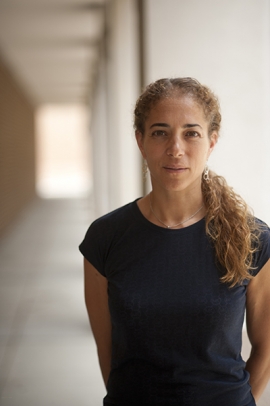Deborah Thomas
Professor of Anthropology
Core Faculty, Gender, Sexuality and Women's Studies
Deborah A. Thomas received her Ph.D. in Anthropology from New York University 2000, and is currently Professor of Anthropology at the University of Pennsylvania. She is also core faculty in Gender, Sexuality and Women’s Studies, holds a secondary appointment with the Graduate School of Education, and is a member of the English graduate group. She is the author of Exceptional Violence: Embodied Citizenship in Transnational Jamaica (2011), Modern Blackness: Nationalism, Globalization, and The Politics of Culture in Jamaica (2004), and is co-editor of Globalization and Race: Transformations in the Cultural Production of Blackness (2006). She is also co-director and co-producer (with John L. Jackson, Jr. and Junior “Gabu” Wedderburn) of the film BAD FRIDAY: RASTAFARI AFTER CORAL GARDENS, a documentary film that chronicles the history of violence in Jamaica through the eyes of its most iconic community – Rastafari – and shows how people use their recollections of the Coral Gardens “incident” in 1963 to imagine new possibilities for the future (www.badfridaythemovie.com). BAD FRIDAY has screened in a variety of film festivals, on university campuses and in community centers throughout North America, Europe, the Caribbean, and South Africa, and at the special invitation of the Rastafari congregation in the Sing Sing Correctional Institute. The film has also aired on Jamaican television stations.
Thomas is currently working on two digital humanities-related projects that continue her interest in the afterlives of violence – and in particular state violence. She is interested in what new forms of community, subjectivity and expectation are produced by violence, and in how these are expressed and mapped. The first is an ethnohistorical project with past and present members of the International Peacemakers Association in Clarendon, Jamaica. This project explores prophetic redemptive visions of sovereignty, visions that provide an alternative to modern liberal democratic notions of the state. One of the outcomes of this project will be a multi-media repository within the Penn Library that holds the Peacemakers’ archival photographs and documents, as well as a number of interviews with founding members of the community. The second project, “Tivoli Stories,” is the basis for a film (Four Days in May) and a multi-media installation (at the Penn Museum), both of which address the state of emergency that began in Jamaica in May 2010. The project is designed to provide a public platform through which participating community members can name and publicly memorialize loved ones they lost during that period, and to interrogate the conceptual frame of archives – in particular, the different sorts of archives that can be assembled to generate insights into the performance of state violence and its effects. “Tivoli Stories” also seeks to contribute to a healing process in which historical silences are broken through audio and visual forms of storytelling (generated ethnographically and artistically), while also contributing to the efforts of human rights activists locally and internationally working on issues related to state violence and extrajudicial killing.




